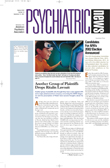Fall is in the air, and one’s attention turns to. . . .budgets. A dominant theme of the national media has been how to deal with a phantom federal budget surplus. Many state budgets have larger than expected shortfalls that endanger funding for Medicaid and other “second tier” priorities for many of our states.
As I write this column, the 2002 budgets for the national offices of APA and the state associations and district branches are being created. Professional association budgets are always difficult to create. There is never enough money to deal with all the important issues on our plate.
2002 will be an especially difficult year for APA because of a slowing economy and decreased dues income. As you know, APA has frozen national dues for the last five years. By doing so, we are about 15 percent below what we would have expected from dues income if we had increased dues each year by the rate of inflation. Five different Boards of Trustees have voted to hold the line on dues and make every attempt to fill in this “loss” by increasing other revenue streams. Dues losses are increased by a loss of dues-paying members—a most sobering fact.
In addition, during 2001 approximately $700,000 of nondues revenue was reallocated to our state associations and district branches for their use in carrying out the mission of the Association.
APA’s budget has grown to $48 million a year. It has grown not only because the cost of goods and services has risen, but also because we are doing many more things than we used to do, from improving CME at meetings and on our Web site to increasing access to care for special populations of patients.
I have been through our budget carefully with members of the Finance and Budget Committee and our excellent staff. While it is clear to me that we are not wasting money, it also is clear that we are living beyond our means.
When good people are trying to do good things for our patients and the profession, and there is a budget shortfall that must be fixed (and it will), the leadership of the Association is called upon to make tough decisions that will affect the future direction of the organization.
Every member with whom I speak has areas of interest and expertise that they would like to see moved to the Association’s front burners. Our Association has traditionally done an excellent job of working on key issues that are brought to our attention by members and staff. We have not done as well at moving important but not critical issues to the back burners so that priority work can be successfully accomplished.
The Finance and Budget Committee is working hard to develop budget recommendations to the Board and governance. Each of us has ideas about priorities. I would suggest that we focus on two areas that are essential to our patients and our professional future.
The first is access to quality psychiatric care for our patients. To me, this is the highest priority of APA. If we are to see quality care delivered to our patients, we must push for improved funding and payment for psychiatric services and unabashedly push for an improved psychiatric practice environment. National and state associations must work together to improve the quality of public ambulatory and residential treatment for our patients. We need to forcefully protect patients from adverse Medicare payment changes and protect psychiatrists from gross administrative burdens mandated by the 1997 Balanced Budget Act and other federal and state legislation and regulations.
The second area is the supply and distribution of psychiatrists. We must increase the supply of American and international medical graduates who choose to enter psychiatry. We must push for a workforce whose demographics, including linguistic and cultural competencies, mirror those of patients in their respective communities. We must create financial incentives through federal and/or private funds to promote entry into working with underserved populations and encourage careers in research and academics.
Sometimes financial challenges allow us to step back and rethink critical issues and priorities for our Association. Your help is needed as we constructively think through our mission and future.
I will do my best to respond to your thoughtful comments. My e-mail address is
[email protected]. ▪

